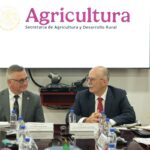Canadian government announces $219 million fund for drought and wildfire relief

Canadian Minister of Agriculture and Agri-Food Lawrence MacAulay announced Oct. 20 that the government has allocated $219 million through the AgriRecovery Framework to support farmers and ranchers in Western Canada who are dealing with extraordinary costs due to drought conditions and wildfires.
“This summer was an extremely challenging time for B.C.’s farmers and ranchers as we dealt with unprecedented drought and wildfire. We’ve been listening to and working with farmers and ranchers, and providing programs and support that meet their unique needs.
“AgriRecovery is another way we are taking action to protect the livelihoods of our province’s food producers, helping them return to their land, while supporting local food security and our local economies,” says Pam Alexis, B.C. Minister of Agriculture and Food.
AgriRecovery is a federal-provincial-territorial disaster relief framework intended to work together with the core BRM programs to help agricultural producers recover from natural disasters. The program helps with the extraordinary costs associated with recovering from disaster events.
Related articles: Canada: Produce purchases increase despite higher prices
This funding supports their recovery and “ensures they have the tools they need to continue to be resilient in the face of natural disasters and extreme weather events,” a release says.
Producers have access to a comprehensive suite of Business Risk Management (BRM) programs, including AgriStability, that are the first line of defense when facing disasters.
AgriStability protects Canadian producers against large declines in farming income for reasons such as production loss, increased costs, and market conditions.
“I’ve had the opportunity to meet with farmers and producers from across Western Canada and they’ve shared just how challenging this growing season has been for their operations. With a federal investment of $219 million through AgriRecovery, we’re helping them recover so they can continue to feed Canada, and the world,” MacAulay adds.














































